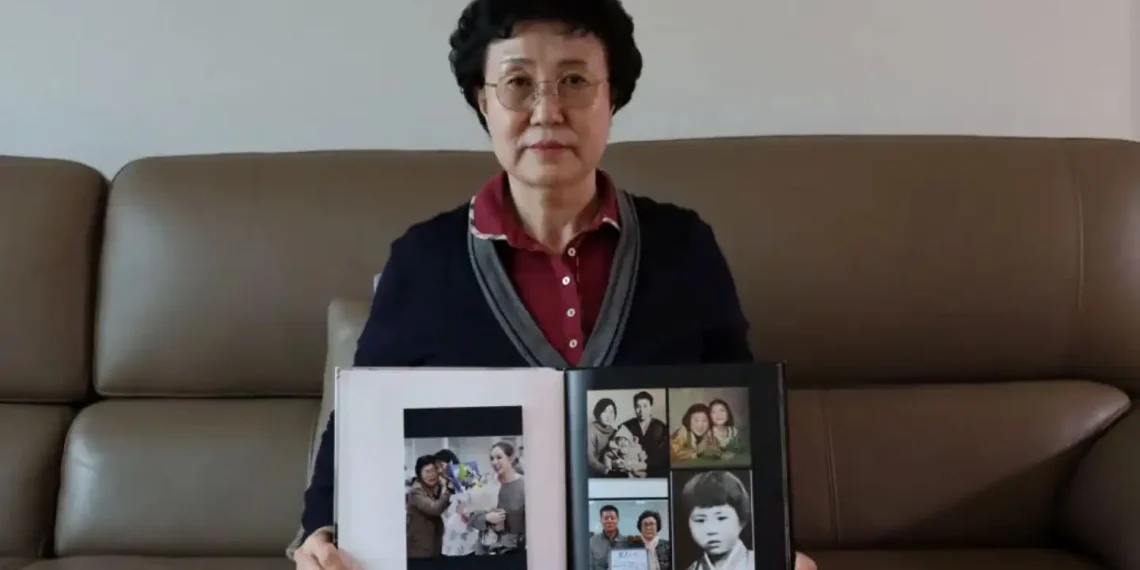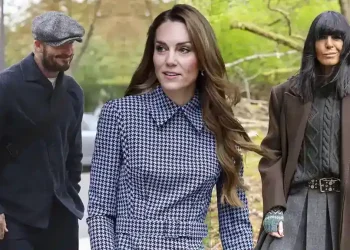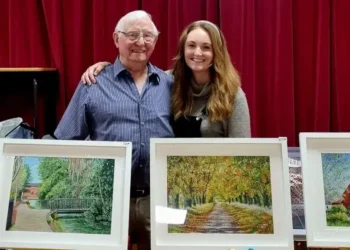Kidnapped as a Child, Lost for 44 Years: A Mother and Daughter’s Emotional Reunion
The last time Han Tae-soon saw her daughter, Kyung-ha, she was just six years old, playing near their home in Seoul back in May 1975.
“I asked her if she wanted to come to the market with me. She said no, she was going to play with her friends,” Ms. Han recalls. But when she returned, her daughter was gone.
For more than four decades, Ms. Han did not see Kyung-ha again. When they finally reunited, Kyung-ha was no longer the little girl she remembered but a middle-aged American woman named Laurie Bender — nearly unrecognizable.
Ms. Han believes her daughter was kidnapped, taken to an orphanage, and then illegally sent to the United States to be adopted by another family. Now 71, she is suing the South Korean government for failing to stop her daughter’s illegal adoption.
Her story is part of a growing wave of allegations exposing fraud, kidnappings, and human trafficking within South Korea’s overseas adoption program — a program that has sent more children abroad than any other country in the world.
A Controversial Adoption Program Under Fire
Since the 1950s, between 170,000 and 200,000 South Korean children have been adopted overseas, mostly by families in Western countries. The program began after the Korean War, when the country was devastated and many children were orphaned or displaced.
For decades, private agencies handled the adoptions with little government oversight. A landmark inquiry in March revealed that successive governments had failed to regulate the process, allowing children to be “mass exported” for profit.
Many of the children sent abroad had been taken without consent — some kidnapped, others falsely declared abandoned. Parents like Ms. Han were left desperate, searching for decades for their lost children.
A 44-Year Search Ends with DNA
Ms. Han spent years visiting police stations, orphanages, and appearing on TV to find Kyung-ha. “I searched so hard, my toenails fell out,” she says.
In 1990, she thought she had found her daughter but was heartbroken when the woman admitted she was not Kyung-ha.
The breakthrough came in 2019, when Ms. Han joined 325 Kamra, a DNA-matching group for Korean adoptees. The match came quickly — Laurie Bender, a nurse living in California.
They reunited in Seoul, sharing a tearful embrace at the airport.
“I’m a hairdresser. When I touched her hair, I knew it was my daughter,” Ms. Han said. “The first thing I told her was ‘I’m so sorry’ — for all the years we were apart.”
Kyung-ha, who now goes by Laurie, said their reunion “felt like a hole in my heart was healed.”
The Dark Truth Behind the Adoptions
Kyung-ha was kidnapped near her home by a woman who falsely claimed her mother didn’t want her anymore. After being taken to a train station and abandoned, Kyung-ha was picked up by police and sent to an orphanage before being flown to the US with forged papers.
This heartbreaking case is far from unique.
At the height of the program in the 1980s, thousands of Korean children were sent abroad annually — many taken under questionable circumstances. Adoption agencies, driven by profit and minimal government control, often falsified documents and hid fees.
The Truth and Reconciliation Commission’s report described the process as a “mass transportation of children like cargo” — with little regard for their wellbeing. Some children died during transit; others were swapped in paperwork to avoid refunding fees.
Accountability and a Path Forward
Despite the evidence, some agencies deny wrongdoing. Holt International, South Korea’s largest adoption agency, is facing lawsuits but denies claims of illegal adoptions under its former chairman.
Experts say the government must share responsibility for enabling the system, describing it as “the captain while the agencies rowed the boat.”
The government has since enacted reforms, aiming to tighten adoption regulations and reduce overseas adoptions. Numbers have dropped dramatically — only 79 children were adopted abroad in 2023, compared to thousands in the 1980s.
Healing the Wounds, But the Journey Continues
Even after their reunion, Ms. Han and Laurie face challenges — living continents apart, with language barriers and years of lost time.
Ms. Han studies English daily, desperate to reconnect with her daughter beyond occasional texts.
“Finding her doesn’t feel like truly finding her. I know where she is, but we can’t communicate. My whole life was ruined, and no money can make up for that,” she says.
Their story is a powerful reminder of the human cost behind South Korea’s overseas adoption program — a painful legacy that the country is only just beginning to confront.
This article was rewritten by JournosNews.com based on verified reporting from trusted sources. The content has been independently reviewed, fact-checked, and edited for accuracy, neutrality, tone, and global readability in accordance with Google News and AdSense standards.
All opinions, quotes, or statements from contributors, experts, or sourced organizations do not necessarily reflect the views of JournosNews.com. JournosNews.com maintains full editorial independence from any external funders, sponsors, or organizations.
Stay informed with JournosNews.com — your trusted source for verified global reporting and in-depth analysis. Follow us on Google News, BlueSky, and X for real-time updates.














